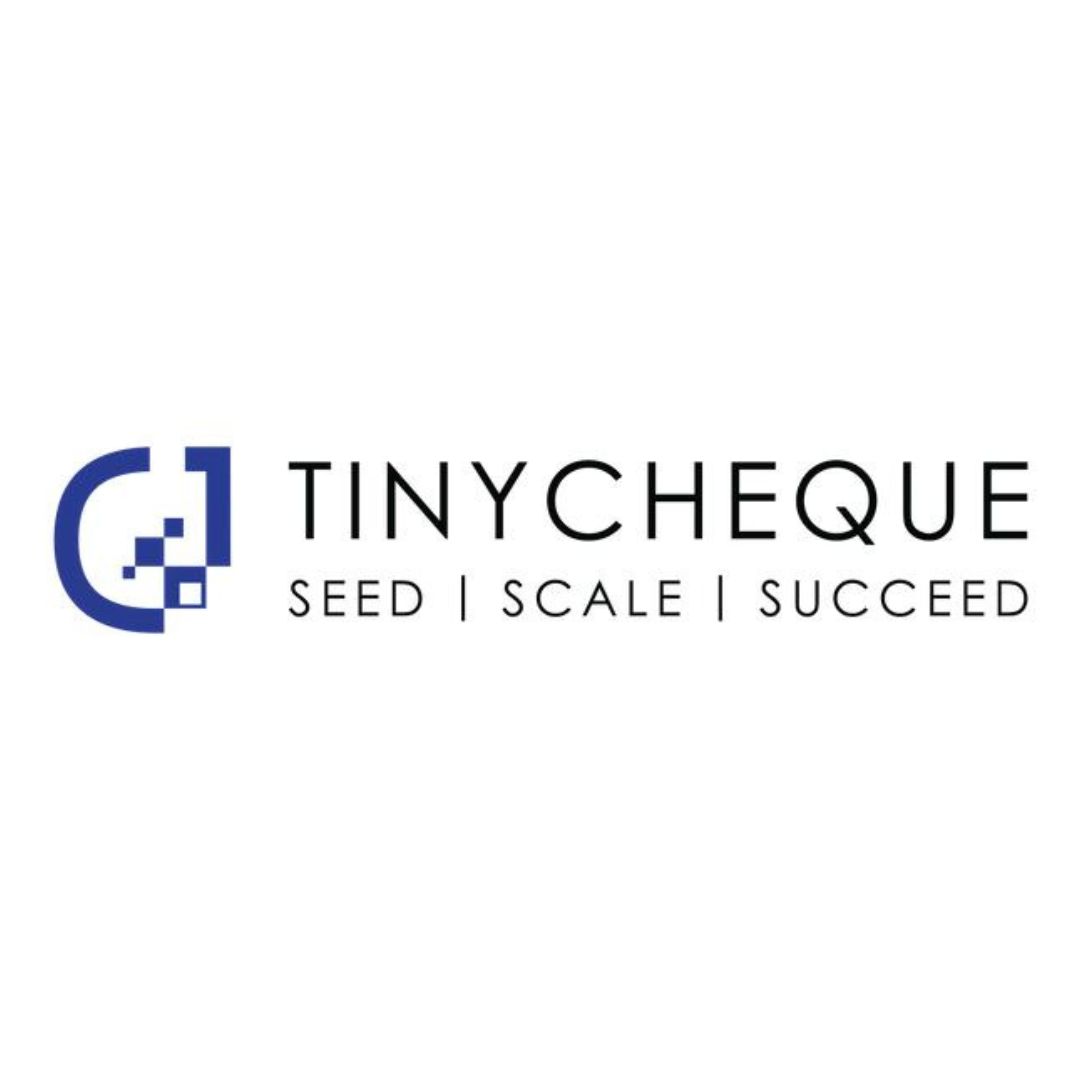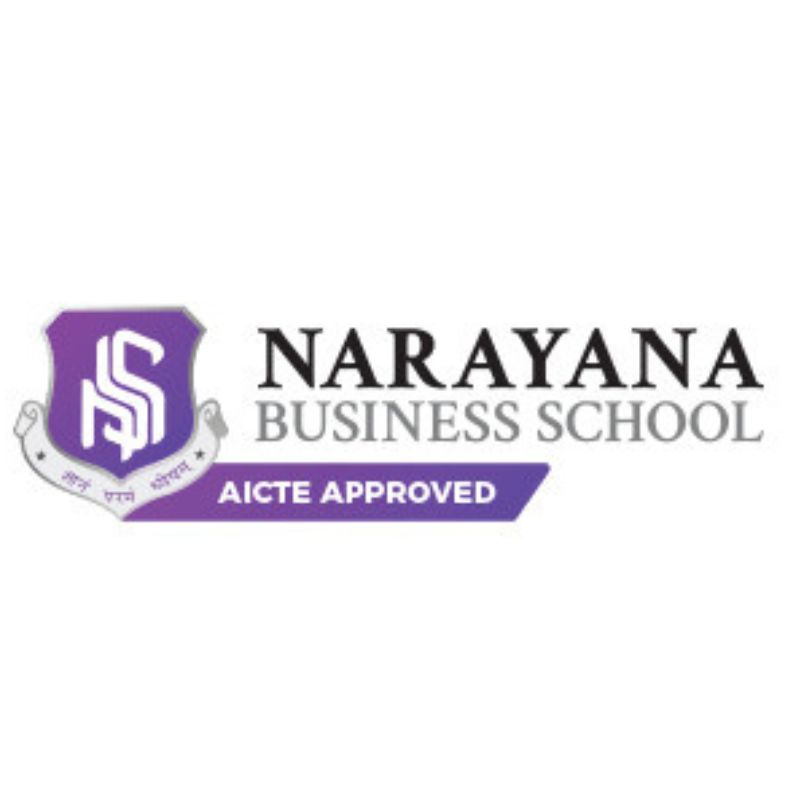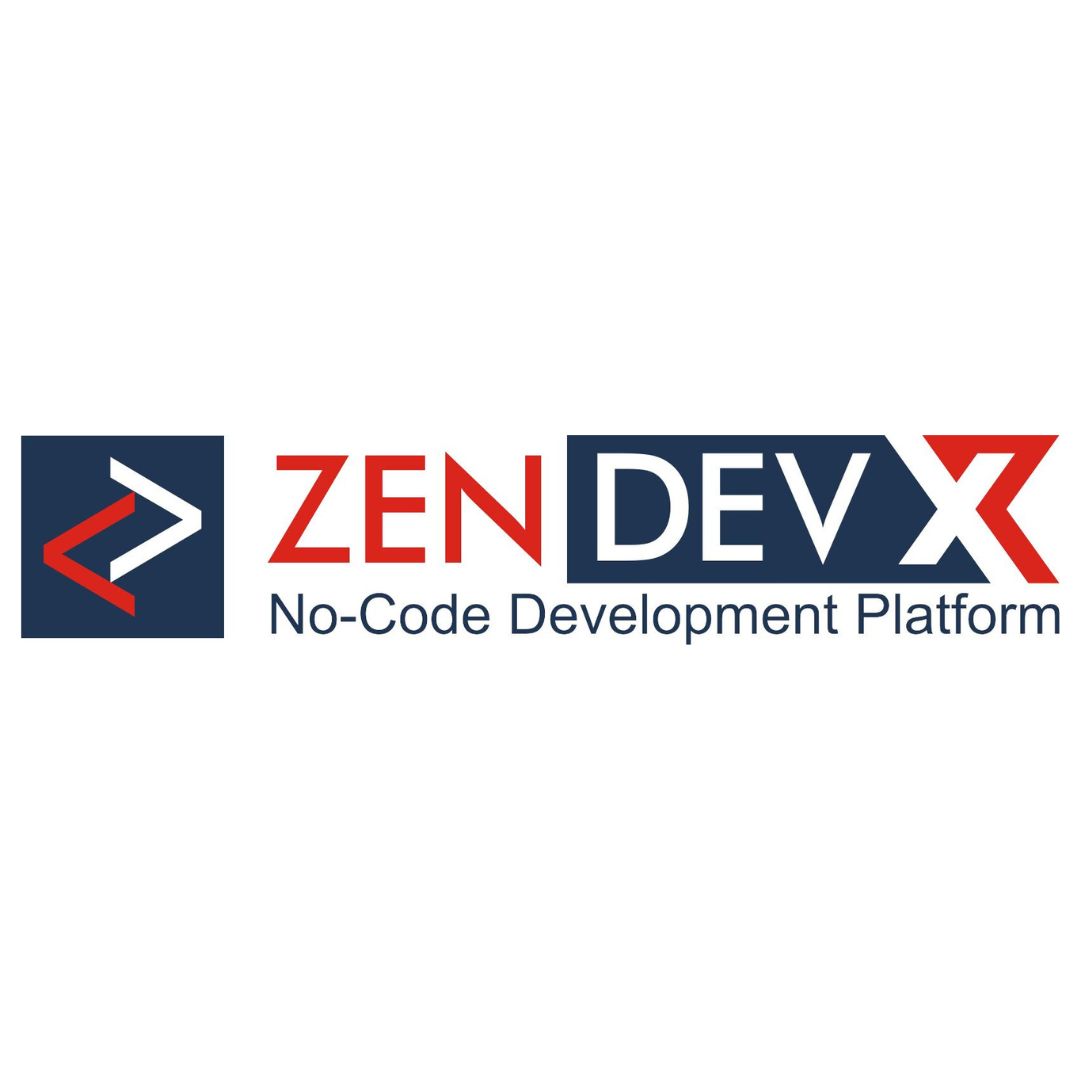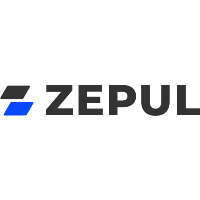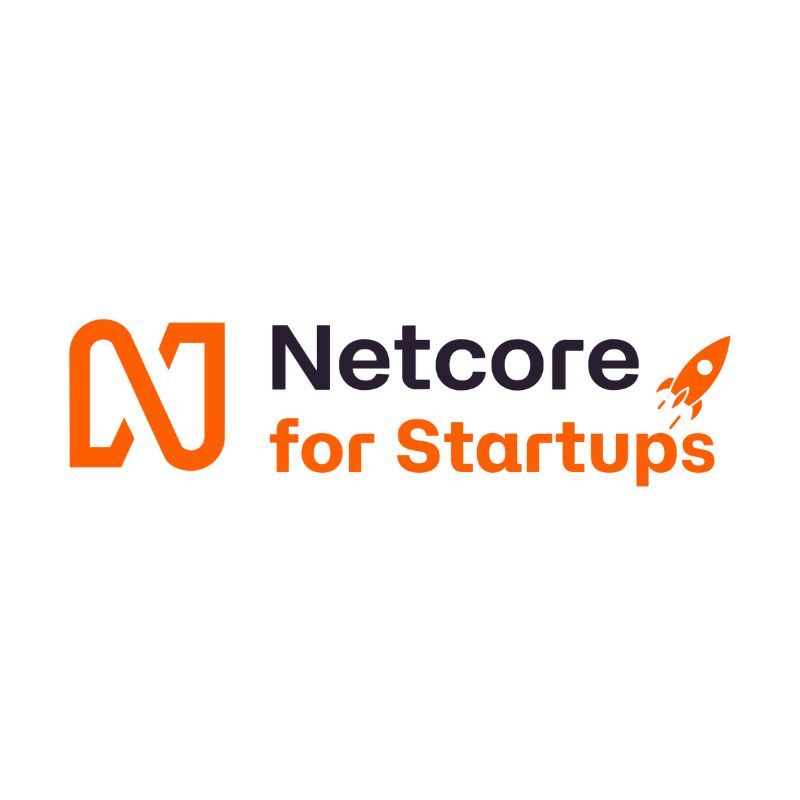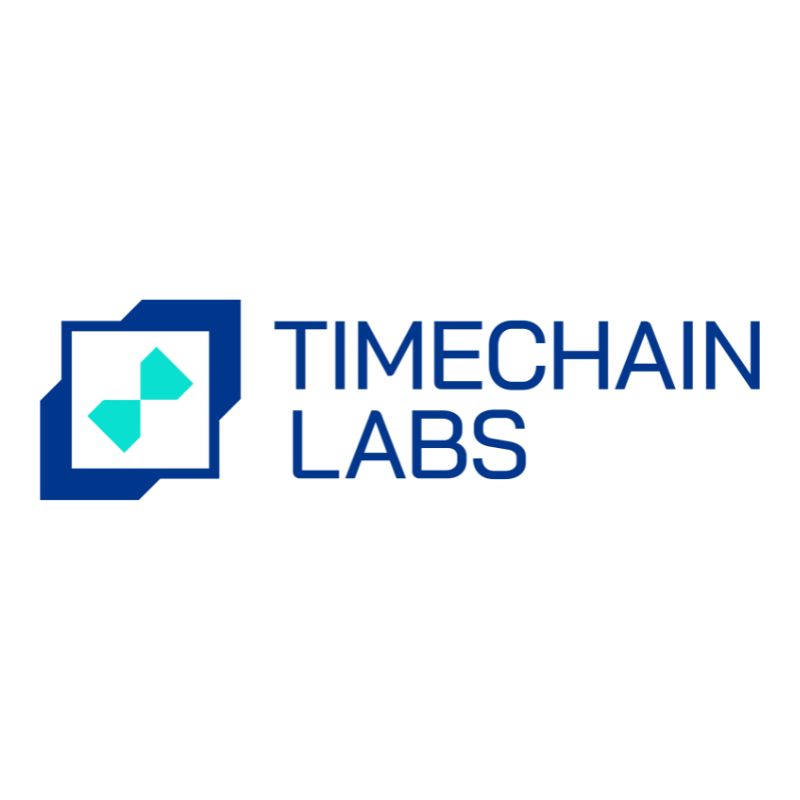It was an interesting evening spent with services founders discussing about transitioning from services to SaaS at GVFL Limited. Here are some notes on what we discussed:
👉 𝐀𝐛𝐨𝐮𝐭 𝐝𝐨𝐢𝐧𝐠 𝐛𝐨𝐭𝐡 𝐨𝐟 𝐭𝐡𝐞𝐦 𝐭𝐨𝐠𝐞𝐭𝐡𝐞𝐫
In my limited experience, doing both services business and a SaaS business together is extremely difficult. Both of them require more than your full time attention and come with very nuanced problems to be solved. Some founders are able to do it. Most companies that do this achieve a really large scale in one of those two and then start the second one. I wouldn't recommend.
👉 𝐀𝐛𝐨𝐮𝐭 𝐚𝐫𝐫𝐢𝐯𝐢𝐧𝐠 𝐚𝐭 𝐩𝐫𝐢𝐜𝐢𝐧𝐠
As a service business, pricing is simpler. It is cost + margin. In SaaS however, it is difficult to arrive at a cost based pricing. Most folks recommend value based pricing but in early stages, it is unclear - the amount of value your SaaS will build for your customers. I'd recommend competitor benchmarking and then speaking to a lot of customers while running experiments. Pricing, much like user research, is an on-going exercise. It is never complete. Hubspot is $2B in ARR - changes pricing every 6 months.
👉 𝐀𝐛𝐨𝐮𝐭 𝐛𝐮𝐢𝐥𝐝𝐢𝐧𝐠 𝐭𝐫𝐮𝐬𝐭
I wrote a post about building trust as a SaaS company a while back. Here's the link --> https://lnkd.in/dTVuX_9F
👉 𝐀𝐛𝐨𝐮𝐭 𝐜𝐡𝐚𝐧𝐧𝐞𝐥𝐬 𝐭𝐡𝐚𝐭 𝐰𝐨𝐫𝐤
At Clientjoy (Acquired by Synup), we tried over 10 GTM experiments. 3 of them worked. The one that worked best was building resources that answered our prospect's most difficult questions (not ebooks, not blogs - but spreadsheets or cheat-sheets). We got about 17K subscribers for these resources. 5K of them became our customers over next 18 months.
👉 𝐀𝐛𝐨𝐮𝐭 𝐟𝐢𝐧𝐝𝐢𝐧𝐠 𝐜𝐨𝐦𝐟𝐨𝐫𝐭 𝐰𝐢𝐭𝐡 𝐬𝐦𝐚𝐥𝐥 𝐭𝐢𝐜𝐤𝐞𝐭 𝐩𝐚𝐲𝐦𝐞𝐧𝐭𝐬
As a services company, we are comfortable with monthly ticket sizes of $4K to $15K. SaaS most likely is 500 times less than that. Building comfort with small ticket recurring payments takes some adjustment. Having customers who you've never spoken to also takes some adjustment.
👉 𝐀𝐛𝐨𝐮𝐭 𝐜𝐡𝐚𝐧𝐠𝐢𝐧𝐠 𝐦𝐢𝐧𝐝𝐬𝐞𝐭 𝐨𝐟 𝐭𝐡𝐞 𝐭𝐞𝐚𝐦
Services business has Clients and these Clients have requirements. SaaS companies have customer cohorts and these cohorts have problems. The mindset required to deal with clients vs customer cohorts is very different. Building that thought process within yourself and the team becomes important. The team will have to go from understanding requirements and giving quotes to listening to problems and identifying insights.
There were a couple more things discussed as well. Do join in the next time if you are around. Thank you Jatin and eChai Ventures for having me in this conversation.
👉 𝐀𝐛𝐨𝐮𝐭 𝐝𝐨𝐢𝐧𝐠 𝐛𝐨𝐭𝐡 𝐨𝐟 𝐭𝐡𝐞𝐦 𝐭𝐨𝐠𝐞𝐭𝐡𝐞𝐫
In my limited experience, doing both services business and a SaaS business together is extremely difficult. Both of them require more than your full time attention and come with very nuanced problems to be solved. Some founders are able to do it. Most companies that do this achieve a really large scale in one of those two and then start the second one. I wouldn't recommend.
👉 𝐀𝐛𝐨𝐮𝐭 𝐚𝐫𝐫𝐢𝐯𝐢𝐧𝐠 𝐚𝐭 𝐩𝐫𝐢𝐜𝐢𝐧𝐠
As a service business, pricing is simpler. It is cost + margin. In SaaS however, it is difficult to arrive at a cost based pricing. Most folks recommend value based pricing but in early stages, it is unclear - the amount of value your SaaS will build for your customers. I'd recommend competitor benchmarking and then speaking to a lot of customers while running experiments. Pricing, much like user research, is an on-going exercise. It is never complete. Hubspot is $2B in ARR - changes pricing every 6 months.
👉 𝐀𝐛𝐨𝐮𝐭 𝐛𝐮𝐢𝐥𝐝𝐢𝐧𝐠 𝐭𝐫𝐮𝐬𝐭
I wrote a post about building trust as a SaaS company a while back. Here's the link --> https://lnkd.in/dTVuX_9F
👉 𝐀𝐛𝐨𝐮𝐭 𝐜𝐡𝐚𝐧𝐧𝐞𝐥𝐬 𝐭𝐡𝐚𝐭 𝐰𝐨𝐫𝐤
At Clientjoy (Acquired by Synup), we tried over 10 GTM experiments. 3 of them worked. The one that worked best was building resources that answered our prospect's most difficult questions (not ebooks, not blogs - but spreadsheets or cheat-sheets). We got about 17K subscribers for these resources. 5K of them became our customers over next 18 months.
👉 𝐀𝐛𝐨𝐮𝐭 𝐟𝐢𝐧𝐝𝐢𝐧𝐠 𝐜𝐨𝐦𝐟𝐨𝐫𝐭 𝐰𝐢𝐭𝐡 𝐬𝐦𝐚𝐥𝐥 𝐭𝐢𝐜𝐤𝐞𝐭 𝐩𝐚𝐲𝐦𝐞𝐧𝐭𝐬
As a services company, we are comfortable with monthly ticket sizes of $4K to $15K. SaaS most likely is 500 times less than that. Building comfort with small ticket recurring payments takes some adjustment. Having customers who you've never spoken to also takes some adjustment.
👉 𝐀𝐛𝐨𝐮𝐭 𝐜𝐡𝐚𝐧𝐠𝐢𝐧𝐠 𝐦𝐢𝐧𝐝𝐬𝐞𝐭 𝐨𝐟 𝐭𝐡𝐞 𝐭𝐞𝐚𝐦
Services business has Clients and these Clients have requirements. SaaS companies have customer cohorts and these cohorts have problems. The mindset required to deal with clients vs customer cohorts is very different. Building that thought process within yourself and the team becomes important. The team will have to go from understanding requirements and giving quotes to listening to problems and identifying insights.
There were a couple more things discussed as well. Do join in the next time if you are around. Thank you Jatin and eChai Ventures for having me in this conversation.

The eChai Ventures AI Social was a truly great experience.Yesterday, I had a pleasant time discussing various AI topics. The conversation with folks was enlightening, and I learned more about AI applications. Thank you, Jatin Chaudhary and GVFL Limited, for hosting such a wonderful social gathering.
Where do we all use AI nowadays? Be it in presentations, content creation, scanning interviews, job searches, education, on LinkedIn, reviewing documents, scanning documents, in e-commerce businesses using photography, or applying it to other skills.
The discussion on fantastic use cases was enlightening; there's a saying that a lot can happen over a cup of tea. Such great discussions are not always about showcasing who we are but often about understanding where the world is heading. The interaction with a few folks was great, and I'm looking forward to meeting and connecting with you again soon.
The discussion of AI's beautiful use cases across various domains—be it driving AI Nisarg Pandya, AI-driven interviews Vinit B Yadav, the education sector Niraj Harlalka, or the creation of mobile apps through AI—highlights its transformative power and versatility.
Nowadays, we often see blogs and posts from AI, and you can feel the difference between personally written and AI-generated content. It was also noted that sites using AI-generated content will be penalized, and the day may come when you have to credit your article as being generated by AI as thoroughly pointed out by Dipti Parmar.
Great mission of Ekta Shah founder of Biziverse is to empower Indian MSMEs to become world-class. Also discussion with VIKASH RAJPUROHIT founder of VastraApp, which is Vertical SaaS for the Textile Industry, was truly fruitful.
The clever integration of personal website visibility in the background during a concise two-line pitch adds a personalized touch that blends professional presentation .The commendable speed at which these tasks are executed is truly impressive Jatin Chaudhary.
In In the world of finance, as a qualified CA and CISA-certified professional, I look forward to more such use cases in the field, but along with ensuring data privacy and personal privacy. So, to conclude, AI is a companion, and we should use it wisely, not blindly. It can never replace humans but definitely saves time.
Where do we all use AI nowadays? Be it in presentations, content creation, scanning interviews, job searches, education, on LinkedIn, reviewing documents, scanning documents, in e-commerce businesses using photography, or applying it to other skills.
The discussion on fantastic use cases was enlightening; there's a saying that a lot can happen over a cup of tea. Such great discussions are not always about showcasing who we are but often about understanding where the world is heading. The interaction with a few folks was great, and I'm looking forward to meeting and connecting with you again soon.
The discussion of AI's beautiful use cases across various domains—be it driving AI Nisarg Pandya, AI-driven interviews Vinit B Yadav, the education sector Niraj Harlalka, or the creation of mobile apps through AI—highlights its transformative power and versatility.
Nowadays, we often see blogs and posts from AI, and you can feel the difference between personally written and AI-generated content. It was also noted that sites using AI-generated content will be penalized, and the day may come when you have to credit your article as being generated by AI as thoroughly pointed out by Dipti Parmar.
Great mission of Ekta Shah founder of Biziverse is to empower Indian MSMEs to become world-class. Also discussion with VIKASH RAJPUROHIT founder of VastraApp, which is Vertical SaaS for the Textile Industry, was truly fruitful.
The clever integration of personal website visibility in the background during a concise two-line pitch adds a personalized touch that blends professional presentation .The commendable speed at which these tasks are executed is truly impressive Jatin Chaudhary.
In In the world of finance, as a qualified CA and CISA-certified professional, I look forward to more such use cases in the field, but along with ensuring data privacy and personal privacy. So, to conclude, AI is a companion, and we should use it wisely, not blindly. It can never replace humans but definitely saves time.
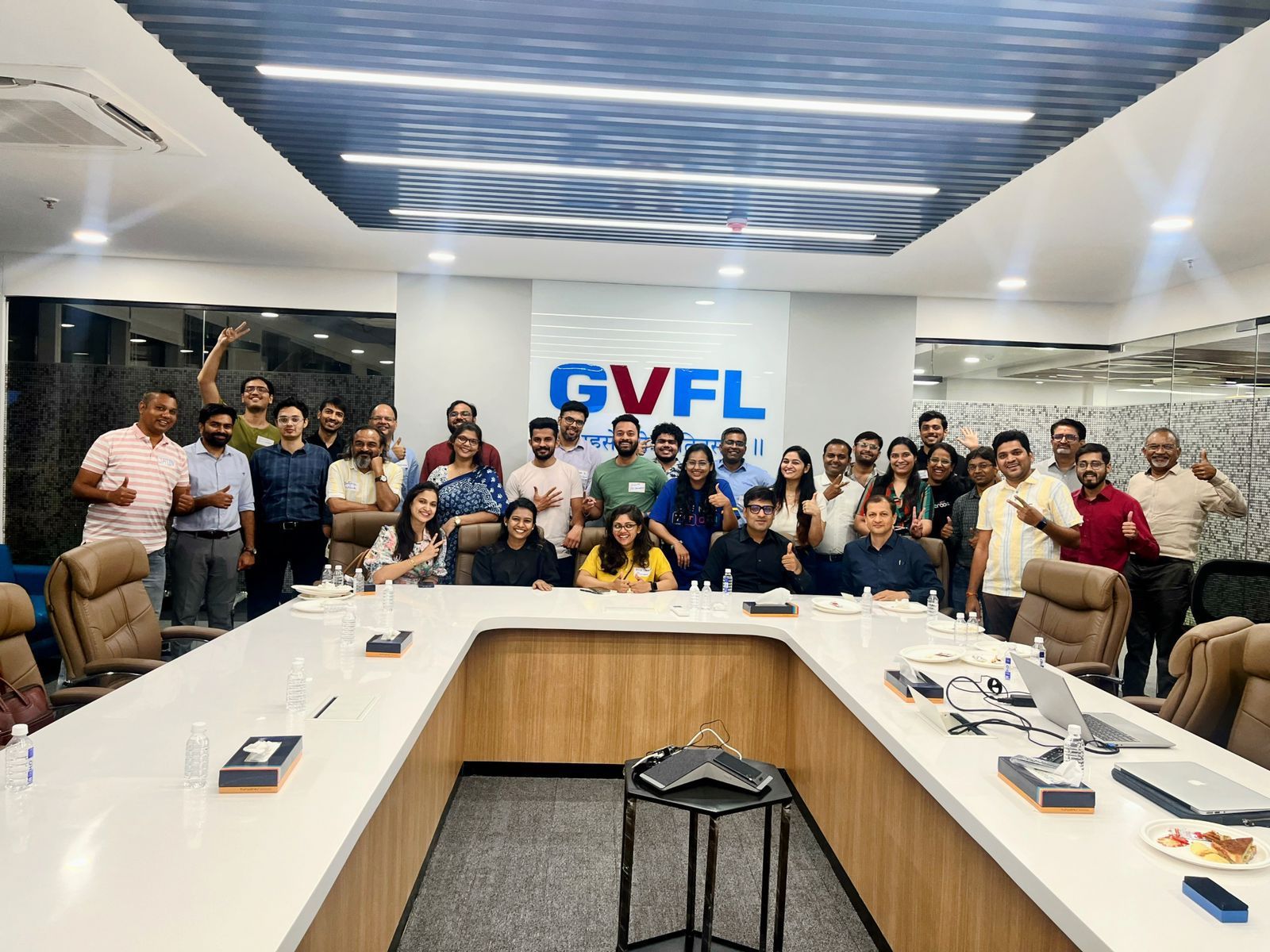
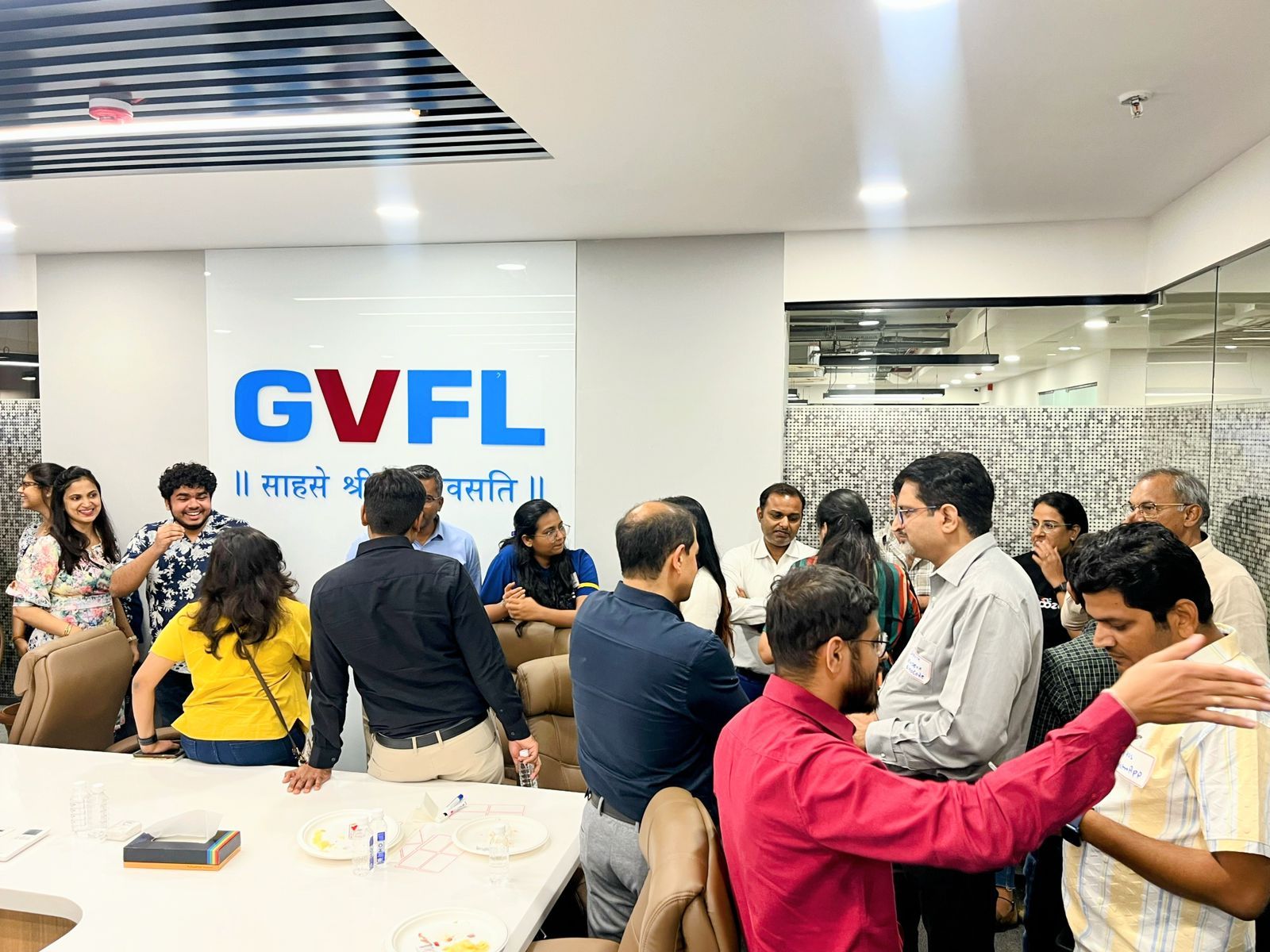
Notes from eChai AI Social at GVFL:
Curious about what went down at the eChai Startup Social with GVFL on March 14, 2024? Get ready to dive into a whirlwind of insights and takeaways straight from our participants themselves.
, Founder, Currently
Curious about what went down at the eChai Startup Social with GVFL on March 14, 2024? Get ready to dive into a whirlwind of insights and takeaways straight from our participants themselves.
- For Graphics and Videos -
Midjourney, ChatGPT, Adobe AI,
You can use AI to replace lots of operational tasks and be more efficient.
Midjourney
Generating concepts
Generating photographs
Eleven Labs
Ai Voiceovers for explainer videod
For our edtech business. AI can be a great contributor for learners and content creators both. Apart from the most common use case of creating AI chatbot.
We are planning to utilize AI tools in Content Discovery, Development and Delivery. Which include Voice & Chatbot based content search on our platform, Video Creation, Text Generation & Summarization (Building Synopsis & Flash Cards), Voice Over, Making a lot of Text Learning more fun through animated videos etc.
I don't think we are looking at answers, mostly it's matter of implementation for us.
AI for resume scanning and candidate shortlisting
Fresh team & Jobscan
AI solutions for training content build and e-learning content for LMS integration
Also I observed that AI for emotional health and intelligence assessment for hiring of critical roles and leadership is not there
AI for Startup Deal Evaluation
AI for adding one strong point as an evaluation parameter for StartUp Founder
We are into fund raising for the startup and invest in early stage startups
Evaluation is a critical aspects for any early stage startups as you have limited financials.
Looking for some innovative AI driven algorithm/parameters to implement in our evaluation process.
We use various tools in our office for graphics, images, and presentations, including ChatGPT-4 and its plugins and DALL-E, as well as Microsoft Copilot. We also utilize software that leverages AI in the backend for tasks like GST reconciliation.
I recently shared a use case and a story titled "A Tale of Technology: AI's Impact on GST" on LinkedIn. You can find it here: https://l1nk.dev/Esd6Z.
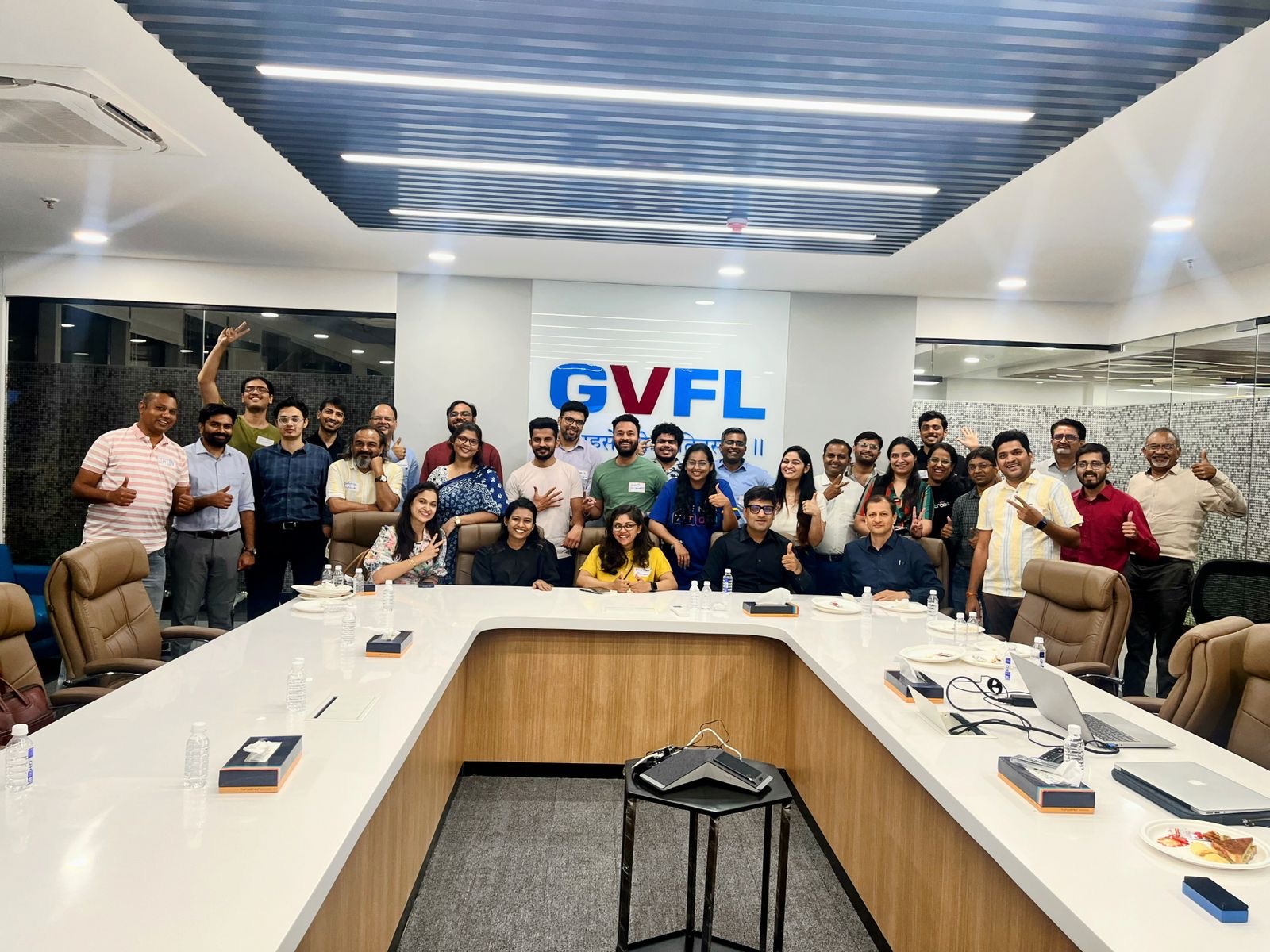
Startup Learning Series: Understanding ROFR vs. ROFO
ROFR (Right of First Refusal)
➡️ What is ROFR?
The holder has the privilege to match any offer the seller receives before finalizing a deal with a third party. Essentially, they have the right to refuse an initial offer and step in with the same terms.
➡️ Example:
Startup A grants an investor a ROFR. If the startup receives a funding/ acquisition offer from Company X, the investor has the first shot at matching that offer before the startup can proceed with Company X.
ROFO (Right of First Offer)
➡️ What is ROFO?
Unlike ROFR, this gives the holder the first chance to make an offer before the seller approaches others. The seller is obligated to consider this initial offer before entertaining offers from third parties.
➡️ Example:
Startup B gives an investor a ROFO. If the startup decides to sell a portion of its shares, the investor gets the opportunity to present an offer first before the startup explores other options.
Which is more beneficial for Startups?
➡️ ROFO: This can be advantageous for startups aiming to maintain control and nurture strategic partnerships. It provides a structured process for selling shares and ensures that existing stakeholders are considered first.
➡️ ROFR: Startups looking for flexibility might prefer ROFR. It allows them to explore various offers and potentially secure a better deal.
Which is more beneficial for Investors?
➡️ ROFR: Investors seeking security and the ability to protect their investment may lean towards ROFR.
➡️ ROFO: Investors looking for proactive involvement and a first-mover advantage may find ROFO more appealing. It allows them to set the initial terms and potentially secure a deal before others come into play.
Considerations for both Parties
➡️ Negotiation Power: ROFO gives negotiating power to the holder by allowing them to set the initial terms.
➡️ Flexibility: ROFR provides flexibility for sellers to explore various offers before committing.
➡️ Relationship Dynamics: Both agreements impact the dynamics between startups and investors, requiring a careful understanding of the long-term vision and goals.
Conclusion
➡️ The choice between ROFR and ROFO depends on the specific needs and goals of the startup and the investor involved.
➡️ It's not a one-size-fits-all scenario, and understanding the nuances is crucial for creating mutually beneficial agreements.
Other posts in the Startup Learning Series:
🔗 Pre-emptive Rights: https://lnkd.in/dQKcThft
🔗 Liquidation Preference: https://lnkd.in/dRb2Eetc
🔗 Anti-dilution Clause: https://lnkd.in/dFSWs2xH
🔗 Understanding ROFR: https://lnkd.in/dxuVBxge
At STIR Advisors, we help startups and investors with our expertise to navigate through such intricacies.
ROFR (Right of First Refusal)
➡️ What is ROFR?
The holder has the privilege to match any offer the seller receives before finalizing a deal with a third party. Essentially, they have the right to refuse an initial offer and step in with the same terms.
➡️ Example:
Startup A grants an investor a ROFR. If the startup receives a funding/ acquisition offer from Company X, the investor has the first shot at matching that offer before the startup can proceed with Company X.
ROFO (Right of First Offer)
➡️ What is ROFO?
Unlike ROFR, this gives the holder the first chance to make an offer before the seller approaches others. The seller is obligated to consider this initial offer before entertaining offers from third parties.
➡️ Example:
Startup B gives an investor a ROFO. If the startup decides to sell a portion of its shares, the investor gets the opportunity to present an offer first before the startup explores other options.
Which is more beneficial for Startups?
➡️ ROFO: This can be advantageous for startups aiming to maintain control and nurture strategic partnerships. It provides a structured process for selling shares and ensures that existing stakeholders are considered first.
➡️ ROFR: Startups looking for flexibility might prefer ROFR. It allows them to explore various offers and potentially secure a better deal.
Which is more beneficial for Investors?
➡️ ROFR: Investors seeking security and the ability to protect their investment may lean towards ROFR.
➡️ ROFO: Investors looking for proactive involvement and a first-mover advantage may find ROFO more appealing. It allows them to set the initial terms and potentially secure a deal before others come into play.
Considerations for both Parties
➡️ Negotiation Power: ROFO gives negotiating power to the holder by allowing them to set the initial terms.
➡️ Flexibility: ROFR provides flexibility for sellers to explore various offers before committing.
➡️ Relationship Dynamics: Both agreements impact the dynamics between startups and investors, requiring a careful understanding of the long-term vision and goals.
Conclusion
➡️ The choice between ROFR and ROFO depends on the specific needs and goals of the startup and the investor involved.
➡️ It's not a one-size-fits-all scenario, and understanding the nuances is crucial for creating mutually beneficial agreements.
Other posts in the Startup Learning Series:
🔗 Pre-emptive Rights: https://lnkd.in/dQKcThft
🔗 Liquidation Preference: https://lnkd.in/dRb2Eetc
🔗 Anti-dilution Clause: https://lnkd.in/dFSWs2xH
🔗 Understanding ROFR: https://lnkd.in/dxuVBxge
At STIR Advisors, we help startups and investors with our expertise to navigate through such intricacies.

In 2020, I hosted a fire side chat with Mukesh Bansal, Co-Founder, Myntra and CureFit about brief history of Myntra, CureFit and his insights from building an iconic indian startup as part of The Red Bricks Summit by IIM Ahmedabad.
Mukesh is a technology entrepreneur with almost two decades of experience working with high tech consumer internet companies. After B.Tech in Computer Science from IIT Kanpur and working across engineering, product management, and leadership roles for four different early-stage tech startups in the Bay Area, he founded Myntra in 2007 which became India's largest online fashion retailer.
Mukesh co-founded Cure.fit in April 2016. Since then, the company has raised a total of $400 million of funding and acquired Cult, 1000Yoga, and Fitness First. Bansal, through Cure.fit, has been instrumental in changing the landscape of India's health and fitness industry.
You can check out the live recording of our conversation below.
At Ahmedabad University's eChai meetup, hosted by the university's incubation center, I had the privilege of engaging with a panel of entrepreneurs who had appeared on Shark Tank India.
They candidly shared insights into their experiences on the show, revealing the realities behind the scenes, the impact of the exposure, and the invaluable feedback they received from the sharks. Additionally, they delved into their ongoing challenges and future plans for their ventures.
Their narratives of resilience and determination in overcoming obstacles were truly captivating.
The distinguished panelists included Raj Shah Co-Founder of WeHear; Payal Pathak and Soham Payal Pathak Co-Founders of The Simply Salad; Nayan Shah Co-Founder of Maisha Lifestyle; and @illesh sharma Founder of Same Notification.
Here are few notable takeaways from the discussion:
They candidly shared insights into their experiences on the show, revealing the realities behind the scenes, the impact of the exposure, and the invaluable feedback they received from the sharks. Additionally, they delved into their ongoing challenges and future plans for their ventures.
Their narratives of resilience and determination in overcoming obstacles were truly captivating.
The distinguished panelists included Raj Shah Co-Founder of WeHear; Payal Pathak and Soham Payal Pathak Co-Founders of The Simply Salad; Nayan Shah Co-Founder of Maisha Lifestyle; and @illesh sharma Founder of Same Notification.
Here are few notable takeaways from the discussion:
- Establishing quality control in franchise models poses significant challenges in the Indian market.
- Providing personalized attention during the startup phase nurtures enduring customer loyalty.
- A distinct and recognizable brand identity is paramount for customer recall and loyalty.
- Startups with high cash burn rates face heightened scrutiny in today's business landscape.
- Crafting relatable content on platforms like Instagram enhances brand appeal and desirability.
- Exceeding customer expectations is pivotal for young startups to foster loyalty and growth.
- Transparency and authentic storytelling serve as cornerstones for building trust with both customers and partners.
- Early recruitment of talented individuals drives both organizational growth and employee commitment.
- Cultivating a robust professional network is essential, even if immediate benefits may not be apparent.
- Maintaining humility and perseverance proves instrumental during challenging phases of business.
I extend my gratitude for the opportunity to participate in these enriching events and to connect with these inspiring entrepreneurs.
Special acknowledgment goes to Jatin Chaudhary from eChai Ventures for orchestrating such impactful conferences that unite our startup community.
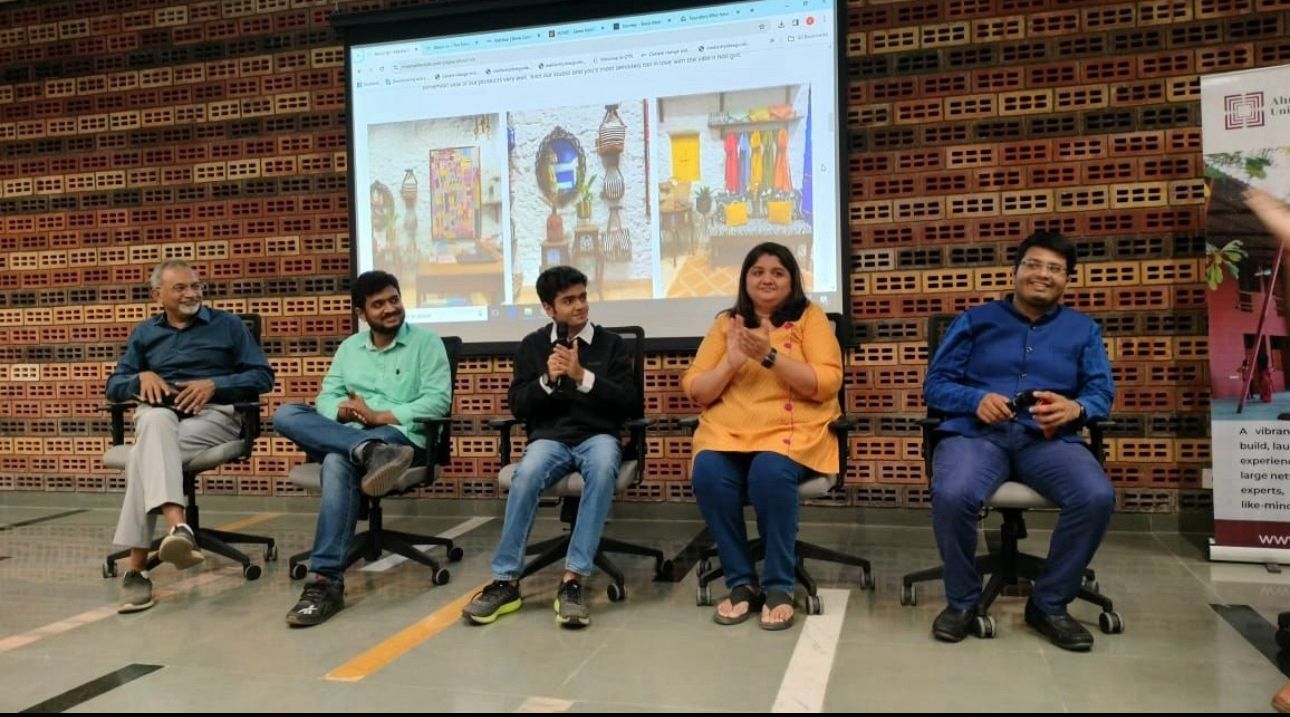
The debut of Lightcone Podcast, a podcast series by Y Combinator.
Kicking off with "The Truth About Building AI Startups Today," this series brings you up close with the thoughts and insights of YC's own Gary, Jared Harge, and Diana.
Kicking off with "The Truth About Building AI Startups Today," this series brings you up close with the thoughts and insights of YC's own Gary, Jared Harge, and Diana.
In the first episode of the Lightcone Podcast, YC Group Partners dig into everything they have learned working with the top founders building AI startups today. They share the ideas that are working particularly well, mistakes to avoid, and take a look at the competitive landscape among the current AI giants.
Whether you're just curious about AI or deep into planning your next big venture, this is something you won't want to miss.
Yesterday, I had the privilege of attending an exhilarating session at the eChai's Startup Growth Networking Meetup, hosted by the dynamic Jatin Chaudhary at the prestigious IIMA Ventures, Ahmedabad.
Our panelists, each a trailblazer in their domain, shared their unique journeys and invaluable insights:
Zaiba Sarang from iThink Logistics is revolutionizing the logistics sector by significantly reducing product return ratios - a game-changer for brands.
Aditya Shah from Because demonstrated how they're helping brands carve their unique voice in a crowded market.
Vishakha Shah from Venus Logistics shared her experiences in the distinct US logistics market, creating substantial waves in the industry.
Sushil Agrawal's initiative, Saarthi Pedagogy, is impacting over 10 lakh students across India, revolutionizing the educational landscape.
The energy was palpable as young entrepreneurs eagerly engaged with the panelists, seeking wisdom on multitasking and effective management as founders.
Ziaba's anecdotes about customer feedback enhancing their product, Sushil's insights on fundraising, Aditya's take on cultivating a growth-oriented work culture, and Vishakha's candid sharing of the challenges faced by female entrepreneurs, added layers of depth to the discussion.
Kudos to Jatin Chaudhary for his relentless efforts and consistency in creating this one-of-a-kind platform that not only connects but inspires and empowers the startup community.
Our panelists, each a trailblazer in their domain, shared their unique journeys and invaluable insights:
Zaiba Sarang from iThink Logistics is revolutionizing the logistics sector by significantly reducing product return ratios - a game-changer for brands.
Aditya Shah from Because demonstrated how they're helping brands carve their unique voice in a crowded market.
Vishakha Shah from Venus Logistics shared her experiences in the distinct US logistics market, creating substantial waves in the industry.
Sushil Agrawal's initiative, Saarthi Pedagogy, is impacting over 10 lakh students across India, revolutionizing the educational landscape.
The energy was palpable as young entrepreneurs eagerly engaged with the panelists, seeking wisdom on multitasking and effective management as founders.
Ziaba's anecdotes about customer feedback enhancing their product, Sushil's insights on fundraising, Aditya's take on cultivating a growth-oriented work culture, and Vishakha's candid sharing of the challenges faced by female entrepreneurs, added layers of depth to the discussion.
Kudos to Jatin Chaudhary for his relentless efforts and consistency in creating this one-of-a-kind platform that not only connects but inspires and empowers the startup community.
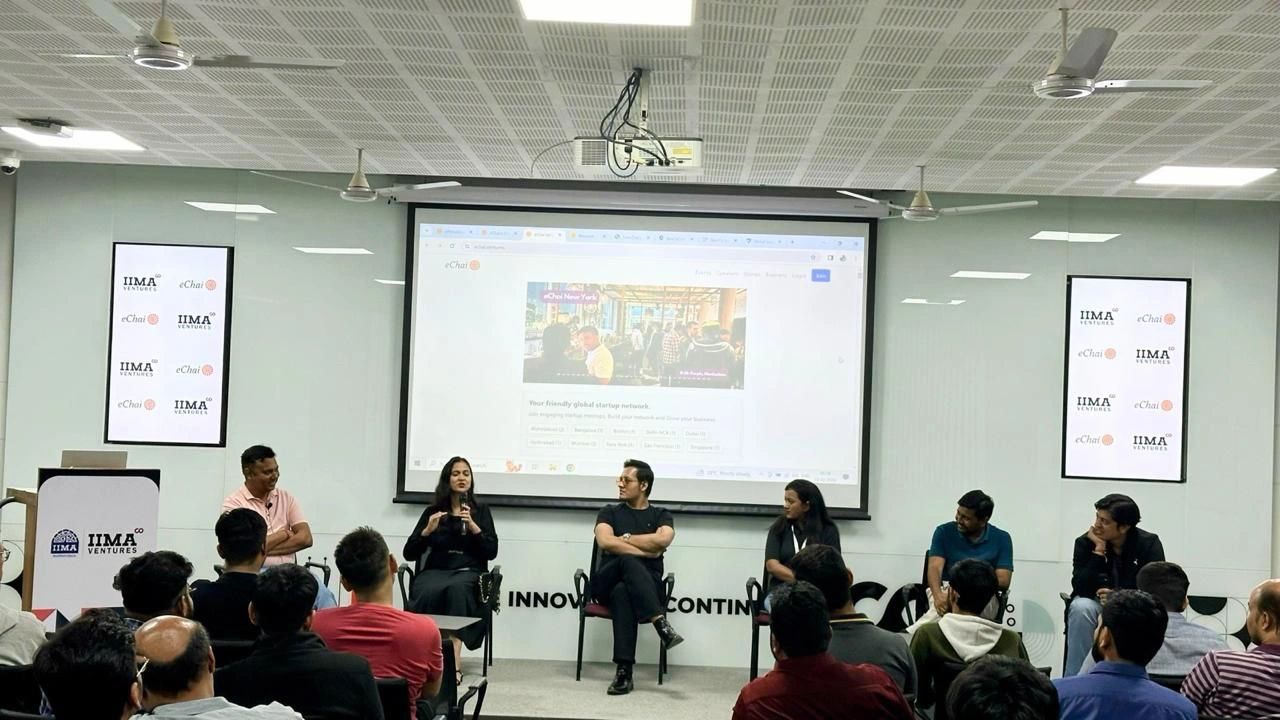
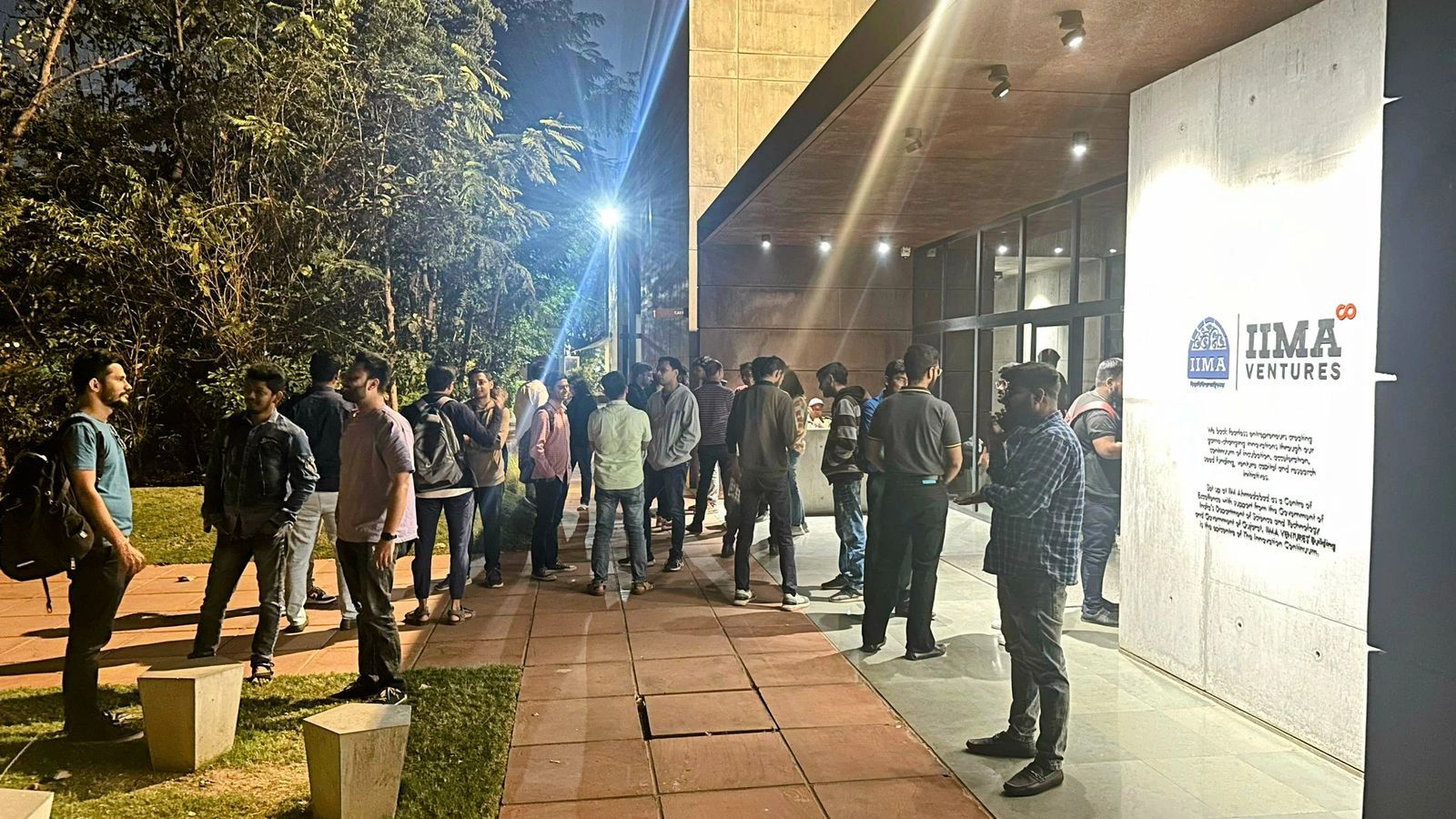
Had an amazing time at eChai yesterday and came back with some gems that I just have to share. This place really shows that the more you share, the more you get back.
Here's what stuck with me:
1. *Go with Your Gut Feeling*:
from Brands.Live dropped this truth bomb - if you feel something's not gonna work, trust that feeling. Trying to push it when your gut says no? That's a no-go. It's all about trusting that inner voice.
2. *Asking Questions the Right Way*:
, the brain behind Saarthi Pedagogy, shared a killer approach:
- Are you even asking the right question?
- Are you asking the right question to the right person?
- And are you asking the right question to the right person at the right time?
Getting this right can really change the game.
These bits of advice are gold, making you rethink how you tackle things in your own journey.
eChai isn't just about giving; it's a place where you gain loads, especially in ways you didn't expect.
Here's what stuck with me:
1. *Go with Your Gut Feeling*:
2. *Asking Questions the Right Way*:
- Are you even asking the right question?
- Are you asking the right question to the right person?
- And are you asking the right question to the right person at the right time?
Getting this right can really change the game.
These bits of advice are gold, making you rethink how you tackle things in your own journey.
eChai isn't just about giving; it's a place where you gain loads, especially in ways you didn't expect.

At IIMA Ventures, we're optimistic about the future of the sustainability sector in India. Harnessing the vibrancy of India's tech ecosystem, startups are poised not just for local impact but to build solutions with a global perspective. Excited to introduce Accenture Sustainability Value Accelerator 2.0's outstanding startups:
sentra.world building an AI platform for calculating, reporting, certifying, and reducing greenhouse gas emissions.
EcoRatings building an AI & ML powered platform for numeric ESG ratings based on the 17 SDGs framework.
TraceX Technologies building solutions focused on transparency, traceability, and sustainability in the food and agriculture supply chain.
CarbonMinus building a SaaS platform ensuring efficiency, compliance, and the realization of net-zero visions.
CarbonTrail building an AI-powered sustainability platform for fashion and retail, measuring environmental impact through automated LCAs and primary supply chain data.
Discover more about our impactful cohort: https://lnkd.in/gsjTnYeU 🚀
sentra.world building an AI platform for calculating, reporting, certifying, and reducing greenhouse gas emissions.
EcoRatings building an AI & ML powered platform for numeric ESG ratings based on the 17 SDGs framework.
TraceX Technologies building solutions focused on transparency, traceability, and sustainability in the food and agriculture supply chain.
CarbonMinus building a SaaS platform ensuring efficiency, compliance, and the realization of net-zero visions.
CarbonTrail building an AI-powered sustainability platform for fashion and retail, measuring environmental impact through automated LCAs and primary supply chain data.
Discover more about our impactful cohort: https://lnkd.in/gsjTnYeU 🚀

So aaj baat karte hai Sales ki , Sales kya hai and jo bhi hai that is according to me. We can agree to disagree. (This is not AI generated :D )
So I was fired from my job in 2007 for being the worst salesman, as my sales for 6 months was ZERO. That was my first sales job as well.
Fir koi job nahi de raha tha to I started on my own, apporached 200+ customers for my services and finally I got it. It's not the subject of classroom learning but the subject of Action. Do 100 cold calls and you will know and you can see the difference between your first cold and call and 100th.
Then to sharpen my skills, I started learning Sales Techniques and Psychological techniques but at the end Click wahi hua jo hona chahiye tha, today I consider myself a good salesman. My learnings in this journey are
- You don't need techniques but you need authenticity
- Sales is not about processes, openings and closures but It's about People , Understanding people is the key.
- Instead of selling, focus on value creation (waise ye sab pahele bhi 100 baar sun ya padh chuke honge )
- If you have empathy , connection , authenticity, Integrity then you understand your customer , team members , partners far better way and that's the key to sales.
- Last is face your fear. Cold calls are most difficult for many people but once you pick up the call and talk like a human , you will realize that person on other side is same and you can have a good talk at least.
Photo story : I am doing what I love doing most, Sales.
So I was fired from my job in 2007 for being the worst salesman, as my sales for 6 months was ZERO. That was my first sales job as well.
Fir koi job nahi de raha tha to I started on my own, apporached 200+ customers for my services and finally I got it. It's not the subject of classroom learning but the subject of Action. Do 100 cold calls and you will know and you can see the difference between your first cold and call and 100th.
Then to sharpen my skills, I started learning Sales Techniques and Psychological techniques but at the end Click wahi hua jo hona chahiye tha, today I consider myself a good salesman. My learnings in this journey are
- You don't need techniques but you need authenticity
- Sales is not about processes, openings and closures but It's about People , Understanding people is the key.
- Instead of selling, focus on value creation (waise ye sab pahele bhi 100 baar sun ya padh chuke honge )
- If you have empathy , connection , authenticity, Integrity then you understand your customer , team members , partners far better way and that's the key to sales.
- Last is face your fear. Cold calls are most difficult for many people but once you pick up the call and talk like a human , you will realize that person on other side is same and you can have a good talk at least.
Photo story : I am doing what I love doing most, Sales.

Notes for founders raising funds for the first time
BabyOrgano has raised the funds from DevX Ventures.
During our pitches to various investors, we've recognized that the transparency of our business model and the founder's honesty have been pivotal in garnering positive responses.
Key pointers:
BabyOrgano has raised the funds from DevX Ventures.
During our pitches to various investors, we've recognized that the transparency of our business model and the founder's honesty have been pivotal in garnering positive responses.
Key pointers:
- Clearly specify the fundraising goal and provide a detailed plan outlining how the funds will be strategically deployed in future initiatives.
- Demonstrate unshakeable confidence in your product idea and vision, even if it appears ambitious or unconventional to others.
- Prioritise transparency by openly acknowledging any potential challenges or drawbacks. Build trust with prospective investors through honest and straightforward communication.

Notes from Startup Exits and M&A Forum
It’s important for both the companies - the company being acquired and the acquirer - to evaluate not just products, services and financials but also whether there is culture fit between the leadership and the team at large.
Due Diligence can bring to light compliance issues as well some times and it is ok. As long as it does not show gross negligence or mis-representation in data, Due Diligence typically goes through.
Diligence at the time of acquisition and diligence at the time of fund-raising are quite different. At the time of acquisition, it is much more focused on team, technology, GTM channels and financials while diligence at the time of fund raising is mostly legal and financial with some attention to other aspects.
It’s difficult for startups to plan for an exit. The plan should be created to become valuable for customers - everything else typically follows.
It’s important for both the companies - the company being acquired and the acquirer - to evaluate not just products, services and financials but also whether there is culture fit between the leadership and the team at large.
Due Diligence can bring to light compliance issues as well some times and it is ok. As long as it does not show gross negligence or mis-representation in data, Due Diligence typically goes through.
Diligence at the time of acquisition and diligence at the time of fund-raising are quite different. At the time of acquisition, it is much more focused on team, technology, GTM channels and financials while diligence at the time of fund raising is mostly legal and financial with some attention to other aspects.
It’s difficult for startups to plan for an exit. The plan should be created to become valuable for customers - everything else typically follows.

Things to keep in mind during fundraising for early stage founders.
1. It is crucial to meticulously select a list of venture capitalists whose interests align with those of your company. This strategic alignment ensures that both parties are working towards common goals, thereby fostering a more fruitful and synergistic partnership.
2. View funding primarily as a catalyst for growth. Often, funds raised merely for the purpose of survival can lead a company into a detrimental cycle. Instead, focus on utilizing capital to accelerate development and expansion, thereby enhancing the company's long-term viability and success.
3. Be aware that certain aspects of your business may raise concerns or 'red flags' from an investor's perspective. It is imperative to continuously strengthen the 'green flags' or positive aspects of your venture. By reinforcing these strengths, you can effectively mitigate the impact of any potential red flags and present your business in a more favourable light to potential investors.
1. It is crucial to meticulously select a list of venture capitalists whose interests align with those of your company. This strategic alignment ensures that both parties are working towards common goals, thereby fostering a more fruitful and synergistic partnership.
2. View funding primarily as a catalyst for growth. Often, funds raised merely for the purpose of survival can lead a company into a detrimental cycle. Instead, focus on utilizing capital to accelerate development and expansion, thereby enhancing the company's long-term viability and success.
3. Be aware that certain aspects of your business may raise concerns or 'red flags' from an investor's perspective. It is imperative to continuously strengthen the 'green flags' or positive aspects of your venture. By reinforcing these strengths, you can effectively mitigate the impact of any potential red flags and present your business in a more favourable light to potential investors.
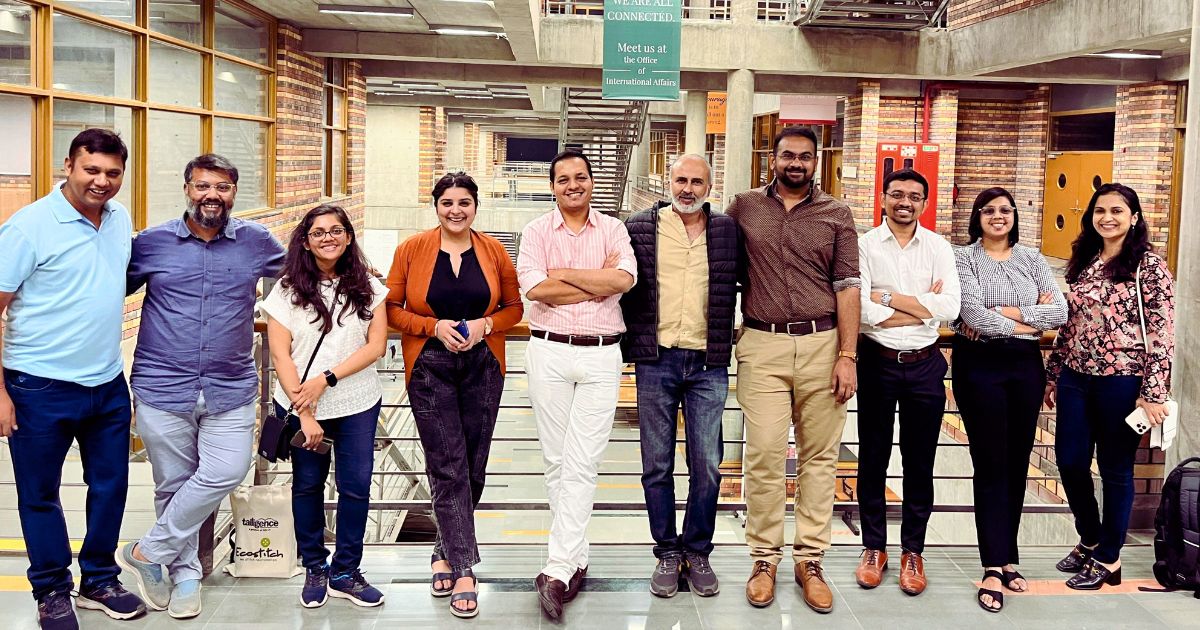
Things to keep in mind during fundraising for early stage founders.
There are no permanent ‘No’s. When an investor passed on your deal, ask for permission to keep them updated every quarter and then enrol them into a list to which you send out a quarterly update across your product, team and growth. You never know when interest in your startup might peak.
Fundraising is a full-time activity for 1 founder. Pitch to as many people as you can. Pitch, Ask for feedback, improve, repeat.
At early stages, valuation is more of an art than a science. Ultimately, when you are at the negotiating table - everything falls back to how desperate you are to raise and how convinced they are to invest in you.
There are no permanent ‘No’s. When an investor passed on your deal, ask for permission to keep them updated every quarter and then enrol them into a list to which you send out a quarterly update across your product, team and growth. You never know when interest in your startup might peak.
Fundraising is a full-time activity for 1 founder. Pitch to as many people as you can. Pitch, Ask for feedback, improve, repeat.
At early stages, valuation is more of an art than a science. Ultimately, when you are at the negotiating table - everything falls back to how desperate you are to raise and how convinced they are to invest in you.
.jpg)
Things to keep in mind during fundraising for early stage founders.
1) It is very important to know/understand when is the right time to raise funds. Don’t raise at the last minute else you won’t have any leverage. Also consider there may be multiple ways to increase your company’s cash including debt options
2) In the struggle between balancing funds and growing customers, try to focus on growing customers using any means necessary. Remember if there is growth, funds will follow.
3) During the process of raising funds, anything could go wrong. Don’t rest just because you have a signed term sheet. It’s never over until the funds are in your bank account.
4) Having some kind of leverage is the most important thing while raising funds.
You can have leverage if,
a) your growth is strong
b) multiple VCs are interested in putting money creating competitive situations
c) founders have a history of building successful companies before
1) It is very important to know/understand when is the right time to raise funds. Don’t raise at the last minute else you won’t have any leverage. Also consider there may be multiple ways to increase your company’s cash including debt options
2) In the struggle between balancing funds and growing customers, try to focus on growing customers using any means necessary. Remember if there is growth, funds will follow.
3) During the process of raising funds, anything could go wrong. Don’t rest just because you have a signed term sheet. It’s never over until the funds are in your bank account.
4) Having some kind of leverage is the most important thing while raising funds.
You can have leverage if,
a) your growth is strong
b) multiple VCs are interested in putting money creating competitive situations
c) founders have a history of building successful companies before
.jpg)
Do's and Don'ts of Fundraising for early stage founders.
Do's
- You should have a clear plan for atleast next 12 months that can be seen on excel sheet, which clearly shows, what this fund raise is going to achieve for you.
- Start the process 4-6 months before you actually need the funds
- Get an understanding of funds portfolio/thesis/decision making process by reaching their portfolio companies prior to pitching.
Don'ts
- Try not to mention about valuations untill explicitly asked. Do not become rigid on a number, try to negotiate and substantiate your number.
- Don't keep high hopes from 1 single investor, keep talking to multiple people at the time. But at same time be transparent about the options to them, whenever you start doing serious conversations on terms and stuff
- Do not mess your cap table with number of people, keep it as clean as possible, it makes your life much much more easy when raising next rounds!
Do's
- You should have a clear plan for atleast next 12 months that can be seen on excel sheet, which clearly shows, what this fund raise is going to achieve for you.
- Start the process 4-6 months before you actually need the funds
- Get an understanding of funds portfolio/thesis/decision making process by reaching their portfolio companies prior to pitching.
Don'ts
- Try not to mention about valuations untill explicitly asked. Do not become rigid on a number, try to negotiate and substantiate your number.
- Don't keep high hopes from 1 single investor, keep talking to multiple people at the time. But at same time be transparent about the options to them, whenever you start doing serious conversations on terms and stuff
- Do not mess your cap table with number of people, keep it as clean as possible, it makes your life much much more easy when raising next rounds!
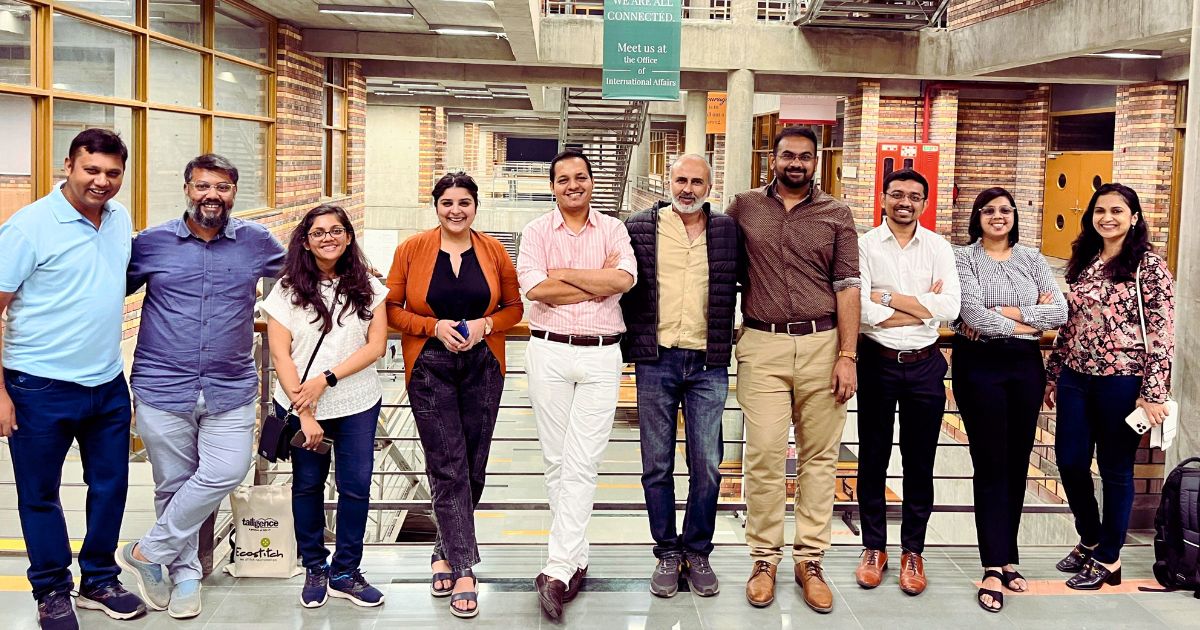
Yesterday, I had the privilege of participating in an insightful meetup organized by eChai and Venture Studio at Ahmedabad University, focused on Startup exits and M&A. The panel featured
from Tridhya Tech and
from Clientjoy, skillfully moderated by
from eChai and myself as a representative from IndiaBizForSale.
The audience comprised a diverse mix of management students, early-stage startup founders, professionals, and seasoned business owners. We delved into valuable discussions on the nuances of M&A experiences, sharing insights from various perspectives.
Clientjoy's recent acquisition by a strategic player and Tridhya Group's strategic acquisitions of nine companies provided rich learning opportunities. As a representative of Indiabizforsale, I had the chance to contribute our experiences, shedding light on exit plans, the pivotal role of investment bankers and outside counsels, dynamics of deal progress, and the strategic timing of exits.
Discussions also touched upon when not to consider an exit, the standard fee structure associated with such activities by investment bankers, and more.
Takeaways from the evening:
1. Team: If you lack previous M&A experience, seek outside counsel to avoid costly mistakes and stay on course during this potential roller coaster event.
2. Unlocking Value: M&A brings definite value unlocking for entrepreneurs, providing a sense of relief as they embark on new beginnings.
3. Role of Clean Bookkeeping and Clear Communication:Transparent communication is vital for sell-sides. Share an accurate company picture to preemptively address any discrepancies that may arise.
4. Reputation Risk: Acquirers, building a fair and forward-looking reputation, attract better deal flow. Unethical tactics may yield short-term wins but jeopardize future opportunities.
5. Due Diligence: The multifaceted Due Diligence (DD) process covers business, HR, financial, legal, tech, IP diligence, and industry-specific areas.
It was truly gratifying to engage with a diverse audience in the thriving Ahmedabad ecosystem, and I'm delighted to be part of the eChai Ventures community. Looking forward to more enriching interactions!
The audience comprised a diverse mix of management students, early-stage startup founders, professionals, and seasoned business owners. We delved into valuable discussions on the nuances of M&A experiences, sharing insights from various perspectives.
Clientjoy's recent acquisition by a strategic player and Tridhya Group's strategic acquisitions of nine companies provided rich learning opportunities. As a representative of Indiabizforsale, I had the chance to contribute our experiences, shedding light on exit plans, the pivotal role of investment bankers and outside counsels, dynamics of deal progress, and the strategic timing of exits.
Discussions also touched upon when not to consider an exit, the standard fee structure associated with such activities by investment bankers, and more.
Takeaways from the evening:
1. Team: If you lack previous M&A experience, seek outside counsel to avoid costly mistakes and stay on course during this potential roller coaster event.
2. Unlocking Value: M&A brings definite value unlocking for entrepreneurs, providing a sense of relief as they embark on new beginnings.
3. Role of Clean Bookkeeping and Clear Communication:Transparent communication is vital for sell-sides. Share an accurate company picture to preemptively address any discrepancies that may arise.
4. Reputation Risk: Acquirers, building a fair and forward-looking reputation, attract better deal flow. Unethical tactics may yield short-term wins but jeopardize future opportunities.
5. Due Diligence: The multifaceted Due Diligence (DD) process covers business, HR, financial, legal, tech, IP diligence, and industry-specific areas.
It was truly gratifying to engage with a diverse audience in the thriving Ahmedabad ecosystem, and I'm delighted to be part of the eChai Ventures community. Looking forward to more enriching interactions!



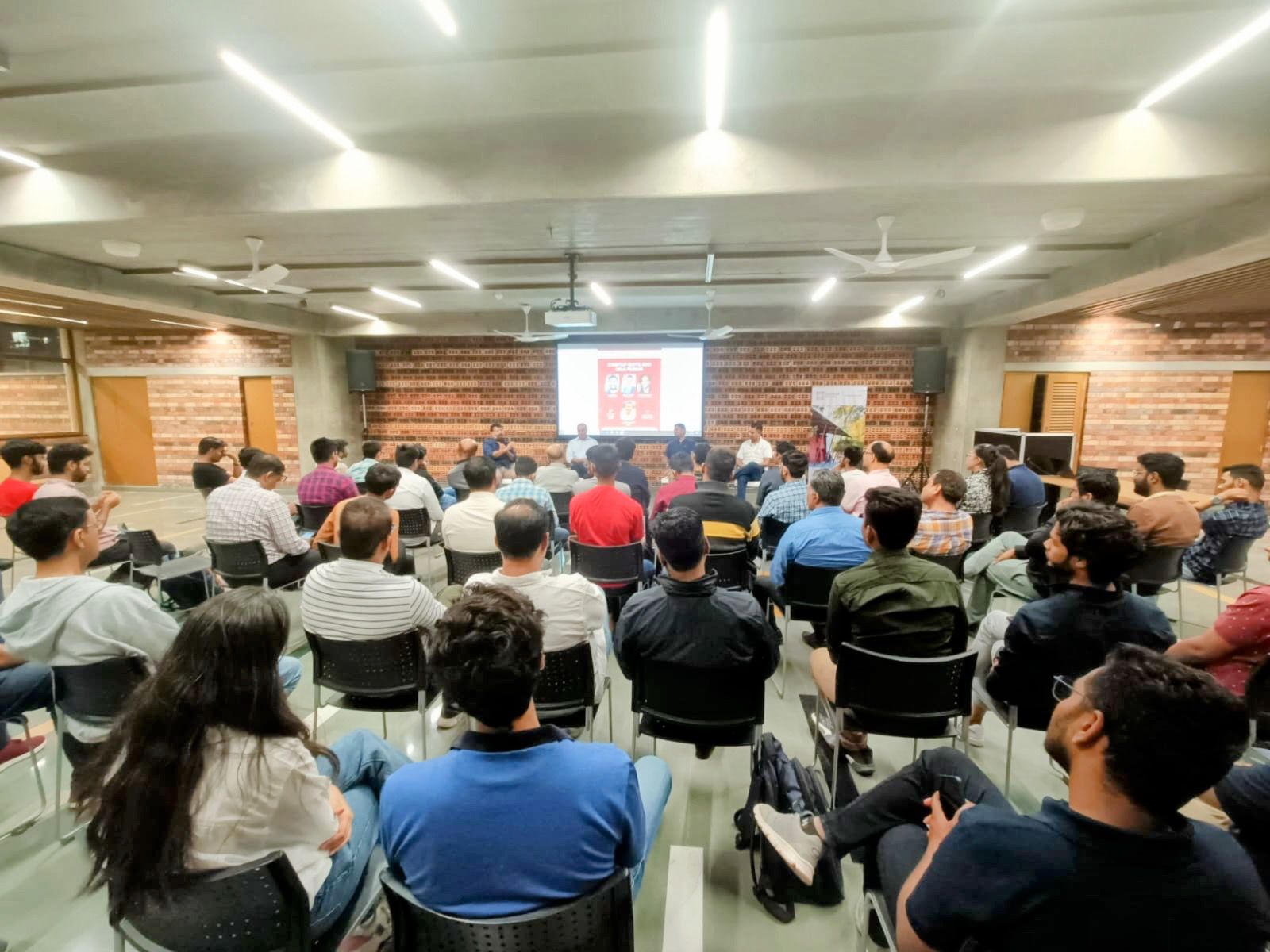
eChai Partner Brands
eChai Ventures partners with select brands as their growth partner, helping them expand market reach, drive revenue growth, amplify brand visibility, and strengthen hiring efforts.
Cloud Telephony
Healthcare
Web and Mobile Development
Employment Laws
CoLiving
Investment Banking
Marketing Tools
HR Tech and Agencies
Coworking Spaces
IT Hardware
Climate Tech
Developer Tools
Ventrue Studio
Event Marketing
Creative and Marketing Agencies
Customer Engagement Platform
Marketing Automation
FinTech and Financial Services
FMCG Food and Retail
Legal
Blockchain Development
FoodTech
ERP
D2C Brands
Cloud Telephony
Healthcare
Web and Mobile Development
Employment Laws
Investment Banking
Marketing Tools
HR Tech and Agencies
Coworking Spaces
Climate Tech
Developer Tools
Ventrue Studio
-
USP: We incubate and accelerate independent and integrated tech businesses.
Event Marketing
Creative and Marketing Agencies
Customer Engagement Platform
Marketing Automation
FinTech and Financial Services
FMCG Food and Retail
Legal
Blockchain Development














